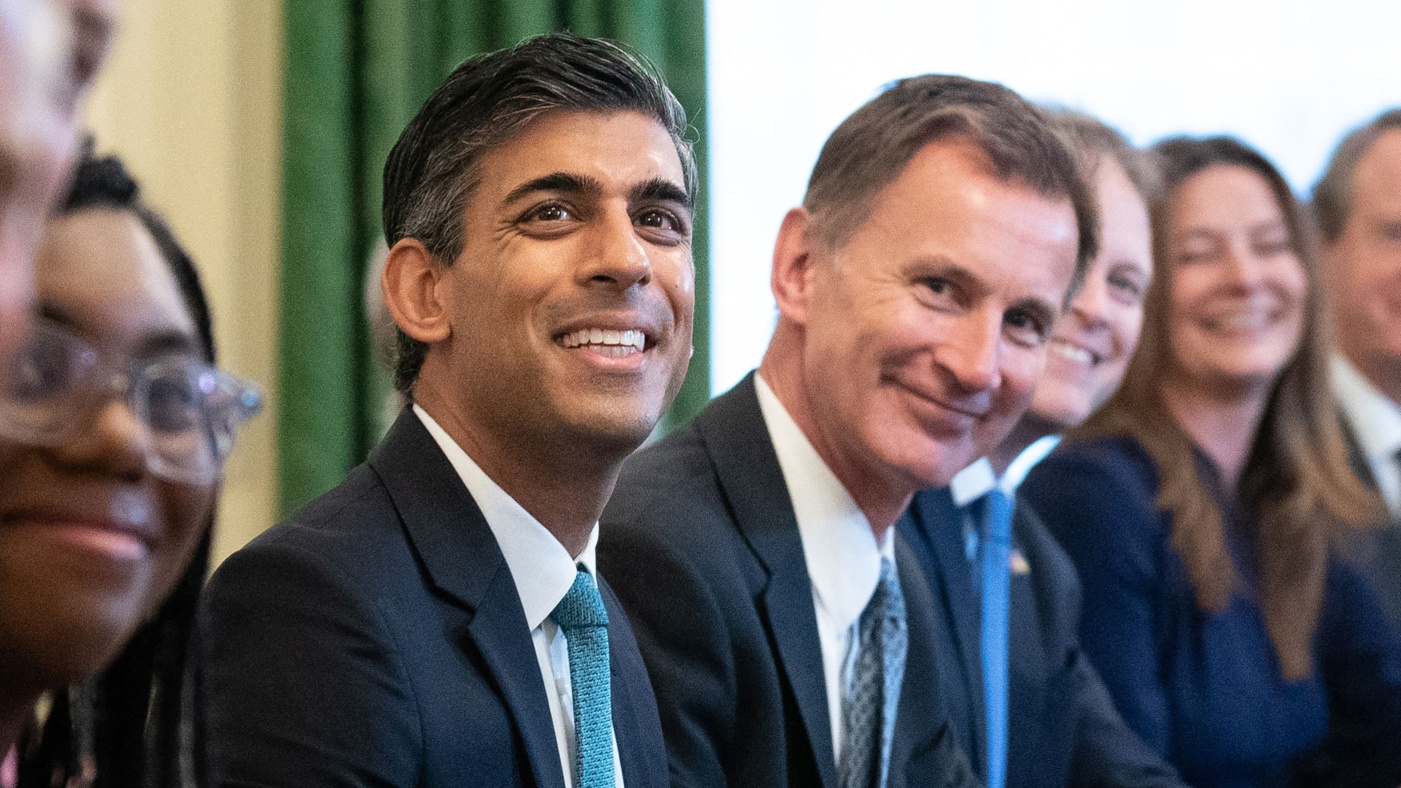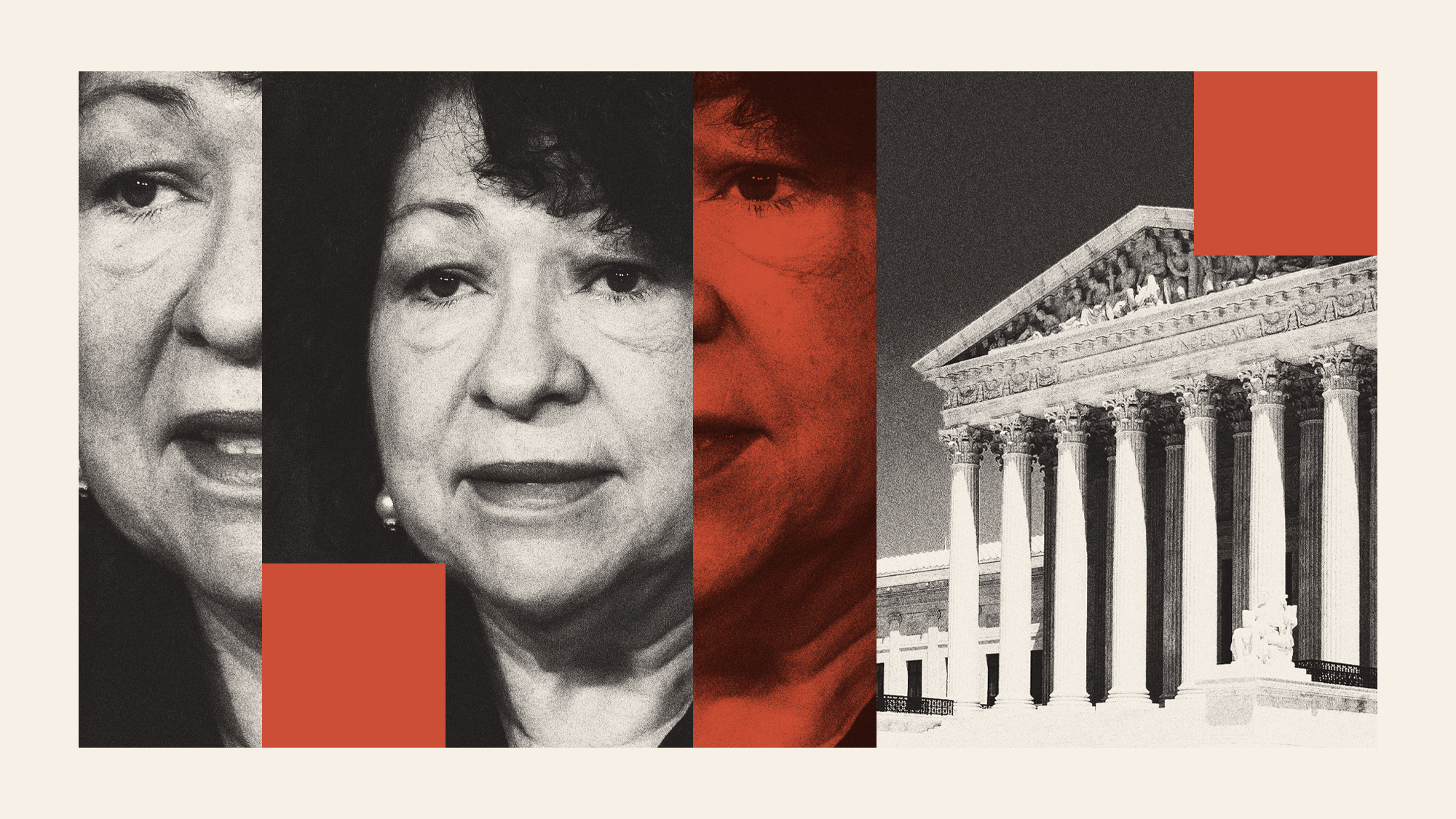Corporation tax rise: crippling investment or calculated risk?
Rishi Sunak and Jeremy Hunt will go ahead with business levy hike, despite warnings from prominent backbenchers

A free daily email with the biggest news stories of the day – and the best features from TheWeek.com
You are now subscribed
Your newsletter sign-up was successful
Prime Minister Rishi Sunak and Chancellor Jeremy Hunt are to forge ahead with plans to raise corporation tax from next month, despite calls from within the Conservative Party to cancel the hike.
Increasing the levy on business profits, first proposed by Rishi Sunak in the 2021 Spring Budget when he was chancellor, will see corporation tax rise by six percentage points from 19% to 25% in April. The hike will form part of Hunt’s “slimmed down” Budget scheduled to take place next week, said the i news site.
‘Pile tax upon tax on British companies’
As the Spring Budget nears, Sunak has increasingly faced calls from business leaders and some MPs from within his party to halt the planned rise to corporation tax, including from former prime ministers Boris Johnson and Liz Truss. In his first major speech since leaving office, Johnson openly challenged his successor to cut corporation tax “to Irish levels or lower” – Ireland’s corporation tax currently stands at 12.5% – in order to “turbocharge” investment in the UK and “drive levelling up across the whole country”.
The Week
Escape your echo chamber. Get the facts behind the news, plus analysis from multiple perspectives.

Sign up for The Week's Free Newsletters
From our morning news briefing to a weekly Good News Newsletter, get the best of The Week delivered directly to your inbox.
From our morning news briefing to a weekly Good News Newsletter, get the best of The Week delivered directly to your inbox.
The Trussite Conservative Growth Group has also reportedly asked the chancellor to halt the rise in a “dossier of demands” submitted to the Treasury last week as part of its efforts to shape the Budget, said the i news site.
British entrepreneur James Dyson took aim at the corporation tax hike in a letter to the chancellor reported over the weekend, as well as efforts to introduce levies on subsidiaries of UK multinational companies. He criticised the plans as “yet another tax grab” that will stop businesses from boosting the economy, arguing that the government “has done nothing but pile tax upon tax on to British companies”, said The Sun.
The billionaire entrepreneur is “right” to urge the government “not to go ahead with a suicidal hike in corporation tax nor, at the same time, to tie the country to a one-size-fits-all global minimum tax”, said the same paper in an editorial yesterday. “Treasury coffers may be empty, but there is plenty of evidence that tax cuts, properly costed and used effectively, can increase government tax income,” argued the paper. “Not to mention giving us an advantage over our rivals in attracting and keeping world-class, wealth-creating businesses.”
“If we are to prosper after Brexit,” said columnist Robert Colvile in The Sunday Times, “we need to make ourselves a more attractive place to do business than our rivals, across all manner of areas. Yet in just the past few weeks, we have seen ARM, our chip design champion, and the pharma firm AstraZeneca both shun the UK”, he said. Indeed, AstraZeneca “explicitly” cited “our high business taxes. The government may argue that we can’t afford to help business,” wrote Colvile. “The truth is that we can’t afford not to.”
A free daily email with the biggest news stories of the day – and the best features from TheWeek.com
‘Lowest tax in the G7’
But “buoyed” by widespread support for the Brexit deal he signed with the European Union last week, Sunak is in “an increasingly strong position to stare down Tory detractors over his budget plans”, said Bloomberg.
The view from the Treasury is that despite the hike, the 25% corporation tax will “still be the lowest in the G7” and leave “70 percent of business unaffected”, reported Politico, “and that the public would not accept cuts to public services to pay for the increase to be cancelled”.
Treasury sources have also played down suggestions that improved economic forecasts “would lead to a change in direction for the Government”, said the i news site. Officials have highlighted analysis from the Institute for Fiscal Studies that “one-off measures, such as prolonging the freeze on fuel duty and extending energy bills support would be affordable, but not large public sector pay rises or a cut to corporation tax”, added the paper.
“They backed up what we have been saying for months,” a Treasury source told the paper – that the Spring Budget is likely to be a thin one. “It will be steady as you go. Very little has changed this month compared to November.”
Sorcha Bradley is a writer at The Week and a regular on “The Week Unwrapped” podcast. She worked at The Week magazine for a year and a half before taking up her current role with the digital team, where she mostly covers UK current affairs and politics. Before joining The Week, Sorcha worked at slow-news start-up Tortoise Media. She has also written for Sky News, The Sunday Times, the London Evening Standard and Grazia magazine, among other publications. She has a master’s in newspaper journalism from City, University of London, where she specialised in political journalism.
-
 5 blacked out cartoons about the Epstein file redactions
5 blacked out cartoons about the Epstein file redactionsCartoons Artists take on hidden identities, a censored presidential seal, and more
-
 How Democrats are turning DOJ lemons into partisan lemonade
How Democrats are turning DOJ lemons into partisan lemonadeTODAY’S BIG QUESTION As the Trump administration continues to try — and fail — at indicting its political enemies, Democratic lawmakers have begun seizing the moment for themselves
-
 ICE’s new targets post-Minnesota retreat
ICE’s new targets post-Minnesota retreatIn the Spotlight Several cities are reportedly on ICE’s list for immigration crackdowns
-
 Ukraine hints at end to 'hot war' with Russia in 2025
Ukraine hints at end to 'hot war' with Russia in 2025Talking Points Could the new year see an end to the worst European violence of the 21st Century?
-
 Labour's plan for change: is Keir Starmer pulling a Rishi Sunak?
Labour's plan for change: is Keir Starmer pulling a Rishi Sunak?Today's Big Question New 'Plan for Change' calls to mind former PM's much maligned 'five priorities'
-
 The future of X
The future of XTalking Point Trump's ascendancy is reviving the platform's coffers, whether or not a merger is on the cards
-
 The Democrats: time for wholesale reform?
The Democrats: time for wholesale reform?Talking Point In the 'wreckage' of the election, the party must decide how to rebuild
-
 What will Trump mean for the Middle East?
What will Trump mean for the Middle East?Talking Point President-elect's 'pro-Israel stance' could mask a more complex and unpredictable approach to the region
-
 Netanyahu's gambit: axing his own defence minster
Netanyahu's gambit: axing his own defence minsterTalking Point Sacking of Yoav Gallant demonstrated 'utter contempt' for Israeli public
-
 Should Sonia Sotomayor retire from the Supreme Court?
Should Sonia Sotomayor retire from the Supreme Court?Talking Points Democrats worry about repeating the history of Ruth Bader Ginsburg
-
 Meloni's migration solution: camps in Albania
Meloni's migration solution: camps in AlbaniaTalking Point The controversial approach is potentially 'game-changing'